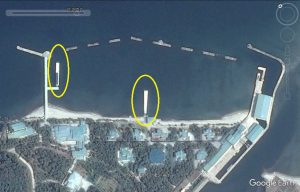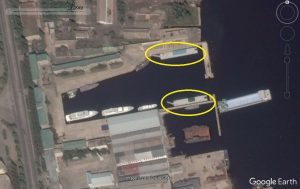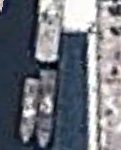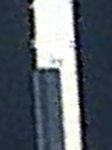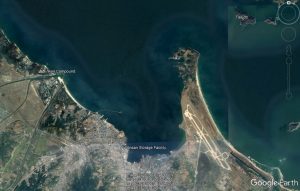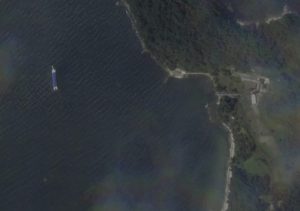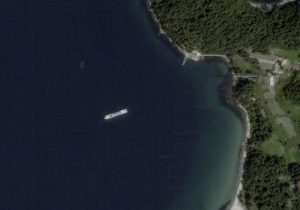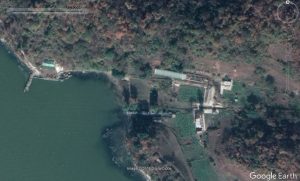Benjamin Katzeff Silberstein
An interesting column in the Daily NK reflects on changes in the North Korean system both to protect consumers, and boost domestic consumer goods production. The author, Na Jung Won, sources some of these insights from North Korean academic journals, pointing out that one article going back as far as to 2012 studies the insights into marketing strategy from the “Boston Consulting Group Matrix”, which I found pretty interesting, and one might wonder whether Choson Exchange has played a role in bringing this particular insight into the country. Overall, North Korean journals tend to often include references to theoretical models that are sometimes unexpected, given the largely closed-off nature of academia and research there.
Here’s the column:
Research has found that the North Korean economy has been growing continuously since the start of the Kim Jong Un era, despite economic sanctions and pressure from the international community. One can thus conclude that the North is able to maintain effective domestic growth while to some extent avoiding the effects of such outside variables. But in order to understand this economic growth, it is important to take a closer look at the North’s particular style of business administration.Changing business law in North KoreaThere have been two revisions or additions to North Korea’s business law since Kim Jong Un came to power – one enacted on November 5, 2013, and the other on May 21, 2015 – changing official business justifications and definitions, organizational principles, and management principles that are beginning to be reflected on the ground in the country.Chapter 1 Article 4 of the business law covering management principles states, “In precisely laying out the nation’s management strategy and business strategy, ‘the administration of socialist business responsibility’ shall be carried out, and management activities must be carried out with socialism as the most fundamental underlying principle.” Chapter 4 is titled ‘Business Management,’ while Chapter 29 covers the same topic. Chapter 30 covers business strategy and the foundation for related business rights over socialist ownership, spelling out the management activities that must be carried out in realizing business development.The entire system of financial management is governed under these business strategies, including item prices, sales, and salary standards. There is also a system for business capital, which spells out rights to earnings for companies, the unemployment payment system, and how companies can acquire loans from a commerce bank. Sales and pricing rights and restrictions are placed on products, contract requirements for distribution, sales, and trade in other products are described, and rules are laid out for how buyers can return problematic or poor-quality products which were misrepresented under the purchasing contract.Trends in North Korean business administration researchNorth Korea is positioning its businesses and factories to increase their capabilities and follow global technological trends under its latest ‘five-year strategy for national economic development,’ revealing a shift in concern toward enacting effective changes to the previous, more centrally-planned economic strategy.Research by Kim Kyung Ok for Economic Study No. 174 (2017-1) states: “Expanding production and planning rights for businesses must include contracts, and ordering contracts which are made under consideration of state central planning and quota fulfillment. Businesses are not permitted to unilaterally cancel contracts without justification, and consultations must be made between the parties to the contract over any changes or cancellations. The results are reviewed by the relevant organs and the agreed-upon production plan must be carried out under strict rules.” In other words, a system has been established to ensure that production contracts are carried out properly.It implies that order contract fulfillment is extremely important even for ordinary businesses. Research by Rim Yong Chan for Economic Study No. 154 (2012-1) states that companies must follow contracts for producing and delivering products to the letter. Cha Jong Kyung writes for Economic Study No. 162 (2014-1) that agreements between factories and businesses must be made under a registered contract stipulating set rules for prices and collateral to ensure each party’s claim to profits. Rules for contracts for production materials, delivery, and other aspects of the process all help establish emerging new responsibilities for all parties involved.North Korea is also increasing research into financial concepts such as credit and non-cash money, hoping to reap the benefits of development through credit and move towards creating new capital in addition to simply saving money. The idea is that diversifying credit-based transaction types will improve consumers’ purchasing power and economic activity as a whole.Marketing has also been the subject of research in North Korea. Economic Study No. 156 (2012-3) by Pak Chun Gwang points to differing payment abilities and demands from residents in different areas and in different seasons of the year, as well as how the growing demands in material culture are affecting available products and services. In other words, matching resident needs and demand for products will have to be carried out according to regional and seasonal ‘targeting’ and ‘positioning.’ In additional research utilizing the principles of product lifecycle (PLC) management and the ‘Boston Consulting Group Matrix’ (typically referred to as the BCG Matrix), concepts of ‘cost leadership’ and ‘differentiation’ in international business management are discussed.Effects of changing business administrationVarious approaches to business management are practiced in workplaces across North Korea. After repairing the Gold Cup Food Processing Plant (est. 2006) in 2015, the previously low-volume operation increased from producing 360 products in less than 10 categories to over 600 products in close to 30 categories in November 2017.A ‘New Products Expo’ starting in August 2017 was used to showcase the country’s domestic products, promoting the customer’s needs as the most important aspect. President of the beverage industry group Rim Song Chol said in an interview, “We are looking to the global market as we produce new products, but we are communicating with and listening to our customers as our number-one concern in informing the products we make,” implying that customer demand for a product is the most important factor in their process.Producers are saying they will halt production for items that do not sell very well in the markets. The use of information management systems in the manufacturing process is also being promoted as helping producers make decisions over materials or whether or not to continue production, where unsuccessful new products are discontinued.The Kim Jong Suk Pyongyang Textile Mill has also apparently shifted production to fabric for business suits after an increase in customer demand, running a synthetic fabric factory in Pyongyang to create a variety of suit material options according to specific orders. Competition in this market is heating up due in part to the use of synthetic fabric recycling for the suits. ‘Tetoron’ synthetic fabric production at the Kim Jong Suk Pyongyang Textile Mill is thus steadily rising, and customers such as the North’s official female marching band were able to demand custom colors and styles for their uniforms.Product distribution companies are also changing to meet the needs of customers, with a lively and competitive market of service providers working to gain a leg up on their competitors. The Kwangbok Area Shopping Center, formerly the Kwangbok Department Store (est. 1991 and renovated in 2011), became a place where domestic products were sold under customer-responsive profit principles. In order to increase the variety of available products, government-affiliated domestic producers such as clothing and foodstuff factories are in the midst of improving capabilities and product quality. To attract more customers and increase sales, lighting fixtures are being improved in the shops and displays appear brighter and more modern. The third floor of the shopping center includes a buffet-style restaurant with over 400 menu items. Shops also offer loyalty cards to encourage repeat visits and offer rewards.The Pyongyang Department Store No. 1 (est. 1982, Jung-gu district) is a top competitor of the Kwangbok Area Shopping Center. There, shops order directly from production companies, and it has become known among consumers in the capital as a place selling all the latest and most popular items. Aiming to become a ‘Shopping Center for the People’s Desires,’ this department store is also focusing on customers’ needs. Shops have instituted a system to track customer reactions and the popularity of items through sales records. These are just some of the latest signs of increasing attention being paid to customer demand in North Korea.
Na Jung Won
Daily NK
2018-05-01

